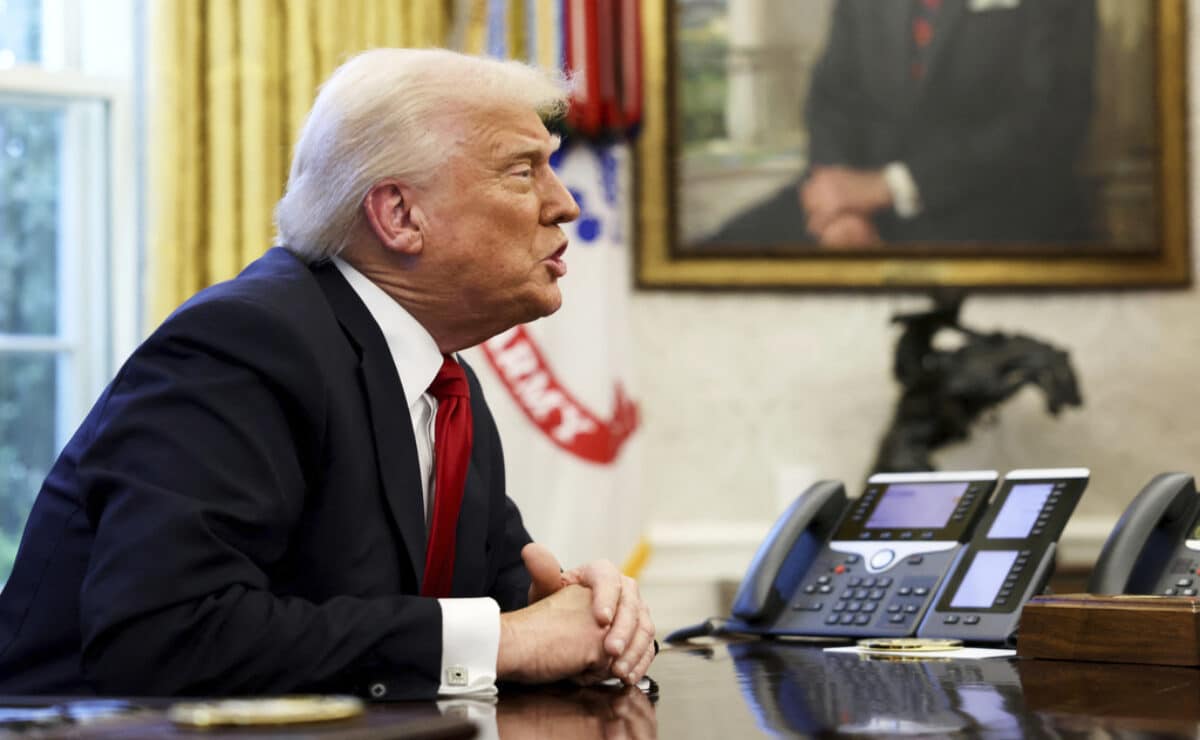The article is the final piece in a comprehensive series (Pakistan’s roadmap to crypto legalization) outlining a roadmap for the legalization and regulation of cryptocurrencies in Pakistan.The previous articles have meticulously addressed defining cryptocurrencies, establishing a legal and regulatory framework, creating an oversight body, setting licensing requirements, ensuring consumer protection, implementing anti-money laundering (AML) frameworks, and devising a tax strategy.This article will focus on promoting innovation in the blockchain and cryptocurrency sector, fostering financial inclusion, educating the public and regulators, and positioning Pakistan as a leader in the global crypto industry.
Pakistan’s roadmap to crypto legalization—VThe goal is to create an ecosystem that balances technological advancement, economic growth, and regulatory oversight while ensuring that the benefits of blockchain technology are accessible to all.The blockchain and cryptocurrency sector represents a transformative force in the global economy, offering unprecedented opportunities for innovation, financial inclusion, and economic growth.The decentralized nature of blockchain technology allows for secure, transparent, and efficient transactions, reducing the need for intermediaries and lowering costs.

Pakistan’s roadmap to crypto legalization—IVThe potential applications of blockchain extend far beyond cryptocurrencies, involving supply chain management, healthcare, voting systems, and more. Pakistan should embrace this technology, which can unlock new avenues for economic development, particularly in a country where a significant portion of the population remains unbanked.Pakistan can position itself as a regional leader in blockchain technology, attracting investment and creating high-skilled jobs by fostering innovation in this sector.
The promotion of innovation in the blockchain and cryptocurrency sector requires a multi-faceted approach, beginning with the creation of regulatory sandboxes. The sandboxes provide a controlled environment where startups and established companies can test new technologies and business models without the immediate burden of full regulatory compliance.Pakistan’s roadmap to crypto legalization–IIIThe sandboxes allow regulators to observe the impact of new technologies in real-time, enabling them to implement regulations that are both effective and flexible.
The establishment of sandboxes in Pakistan would encourage local startups to experiment with blockchain solutions, fostering a culture of innovation and entrepreneurship.The sandboxes would also attract international companies looking to test their technologies in a supportive environment, further boosting Pakistan’s position in the global crypto industry.The education of the public, businesses, and government officials is critical to the successful adoption of blockchain technology and cryptocurrencies.
Pakistan’s roadmap to crypto legalization–IIThe lack of understanding about these technologies often leads to skepticism and resistance, hindering their potential benefits. The government should invest in comprehensive educational programmes aimed at increasing awareness and understanding of blockchain and cryptocurrencies.The programmes should target a wide audience, including students, entrepreneurs, policymakers, and financial institutions.
The curriculum should cover the basics of blockchain technology, its applications, and the risks and opportunities associated with cryptocurrencies. The education initiatives should also include workshops, seminars, and online courses to ensure widespread accessibility.Pakistan can foster a more informed and engaged community that actively participates in the digital economy, by equipping the public with the knowledge to navigate the crypto landscape.
Pakistan’s roadmap to crypto legalization-IThe regulators play a pivotal role in shaping the future of the blockchain and cryptocurrency sector.The regulators must be well-versed in the technical and economic aspects of blockchain technology to create a regulatory framework that balances innovation with consumer protection.The government should establish specialized training programmes for regulators, focusing on the latest developments in blockchain and crypto assets.
The training programmes should be conducted in collaboration with international experts and institutions to ensure that Pakistani regulators are equipped with global best practices. The well-informed regulators can create policies that encourage innovation while mitigating risks, ensuring that the sector grows sustainably and responsibly.The financial inclusion is one of the most significant benefits of blockchain technology and cryptocurrencies.
The traditional financial systems often exclude marginalized populations due to high costs, lack of infrastructure, and stringent requirements.The blockchain-based financial solutions can provide access to banking services for the unbanked and underbanked, enabling them to participate in the formal economy. The decentralized finance (DeFi) platforms, for example, allow users to access loans, savings, and insurance without the need for traditional banks.
The government should promote the development of blockchain-based financial services that cater to the needs of underserved communities.The initiatives could include partnerships with fintech companies, the development of blockchain-based payment systems, and the integration of cryptocurrencies into existing financial infrastructure.Pakistan can bridge the gap between the formal and informal economies, empowering millions of citizens to improve their financial well-being by leveraging blockchain technology.
The international cooperation is essential to the success of Pakistan’s blockchain and cryptocurrency strategy. The global nature of the crypto industry means that no country can operate in isolation.The government should actively engage with international organizations, regulatory bodies, and other countries to share knowledge, harmonize regulations, and prevent regulatory arbitrage.
The participation in global forums such as the Financial Action Task Force (FATF) and the International Organization of Securities Commissions (IOSCO) can help Pakistan stay abreast of the latest developments in crypto regulation.The bilateral and multilateral agreements with other countries can facilitate cross-border collaboration, enabling Pakistani startups to access international markets and investors.International cooperation also helps in addressing challenges such as money laundering, terrorism financing, and tax evasion, ensuring that the crypto industry operates in a transparent and accountable manner.
The monitoring and adaptation of regulations are crucial to the long-term success of the blockchain and cryptocurrency sector.The rapid pace of technological advancements means that regulations must be dynamic and responsive to emerging risks and opportunities. The government should establish a dedicated task force to monitor the crypto market, analyze trends, and update regulations as needed.
The task force should include experts from various fields, including technology, finance, law, and economics, to ensure a holistic approach to regulation.The regular reviews of the regulatory framework can help identify gaps and areas for improvement, ensuring that the sector remains competitive and resilient. The proactive approach to regulation can also enhance investor confidence, attracting more capital into the Pakistani crypto market.
Moreover, investment in the blockchain and cryptocurrency sectors is key to driving innovation and economic growth.The government should create a favorable environment for both local and foreign investors by offering incentives such as tax breaks, grants, and subsidies. The establishment of venture capital funds focused on blockchain startups can provide the necessary funding for innovative projects.
The government should also encourage public-private partnerships to leverage the expertise and resources of the private sector. The investment in infrastructure, such as high-speed internet and data centers, is essential to supporting the growth of the crypto industry.The development of a robust ecosystem for blockchain and cryptocurrencies can position Pakistan as a hub for innovation, attracting talent and investment from around the world.
The leadership in the global crypto industry requires a strategic approach that combines innovation, regulation, and international collaboration.The government should develop a clear vision for the future of the blockchain and cryptocurrency sector, outlining specific goals and milestones. The vision should be communicated effectively to all stakeholders, including the public, businesses, and international partners.
The government should also establish a dedicated agency to oversee the implementation of the crypto strategy, ensuring that all initiatives are aligned with the overall vision. The proactive and forward-thinking approach can help Pakistan become a leader in the global crypto industry, setting an example for other countries to follow.The blockchain and cryptocurrency sector offers immense potential for innovation, financial inclusion, and economic growth.
The successful adoption of this technology requires a comprehensive and coordinated approach that involves all stakeholders.The creation of regulatory sandboxes, investment in education, promotion of financial inclusion, international cooperation, and dynamic regulation are essential components of a successful crypto strategy.The government’s commitment to fostering innovation and creating a supportive environment for the crypto industry can position Pakistan as a leader in the global digital economy.
The journey towards crypto legalization and regulation is complex, but with the right policies and initiatives, Pakistan can unlock the full potential of blockchain technology and cryptocurrencies, driving economic growth and improving the lives of its citizens.(Concluded)Copyright Business Recorder, 2025.
Roadmap to crypto legalization—VI

The article is the final piece in a comprehensive series (Pakistan’s roadmap to crypto legalization) outlining a roadmap for the legalization and regulation of cryptocurrencies in Pakistan.The previous articles have meticulously addressed defining cryptocurrencies, establishing a legal and regulatory framework, creating an oversight body, setting licensing requirements, ensuring consumer protection, implementing anti-money laundering (AML) frameworks, and devising a tax strategy.This article will focus on promoting innovation in the blockchain and cryptocurrency sector, fostering financial inclusion, educating the public and regulators, and positioning Pakistan as a leader in the global crypto industry.Pakistan’s roadmap to crypto legalization—VThe goal is to create an ecosystem that balances technological advancement, economic growth, and regulatory oversight while ensuring that the benefits of blockchain technology are accessible to all.The blockchain and cryptocurrency sector represents a transformative force in the global economy, offering unprecedented opportunities for innovation, financial inclusion, and economic growth.The decentralized nature of blockchain technology allows for secure, transparent, and efficient transactions, reducing the need for intermediaries and lowering costs.Pakistan’s roadmap to crypto legalization—IVThe potential applications of blockchain extend far beyond cryptocurrencies, involving supply chain management, healthcare, voting systems, and more. Pakistan should embrace this technology, which can unlock new avenues for economic development, particularly in a country where a significant portion of the population remains unbanked.Pakistan can position itself as a regional leader in blockchain technology, attracting investment and creating high-skilled jobs by fostering innovation in this sector.The promotion of innovation in the blockchain and cryptocurrency sector requires a multi-faceted approach, beginning with the creation of regulatory sandboxes. The sandboxes provide a controlled environment where startups and established companies can test new technologies and business models without the immediate burden of full regulatory compliance.Pakistan’s roadmap to crypto legalization–IIIThe sandboxes allow regulators to observe the impact of new technologies in real-time, enabling them to implement regulations that are both effective and flexible. The establishment of sandboxes in Pakistan would encourage local startups to experiment with blockchain solutions, fostering a culture of innovation and entrepreneurship.The sandboxes would also attract international companies looking to test their technologies in a supportive environment, further boosting Pakistan’s position in the global crypto industry.The education of the public, businesses, and government officials is critical to the successful adoption of blockchain technology and cryptocurrencies.Pakistan’s roadmap to crypto legalization–IIThe lack of understanding about these technologies often leads to skepticism and resistance, hindering their potential benefits. The government should invest in comprehensive educational programmes aimed at increasing awareness and understanding of blockchain and cryptocurrencies.The programmes should target a wide audience, including students, entrepreneurs, policymakers, and financial institutions.The curriculum should cover the basics of blockchain technology, its applications, and the risks and opportunities associated with cryptocurrencies. The education initiatives should also include workshops, seminars, and online courses to ensure widespread accessibility.Pakistan can foster a more informed and engaged community that actively participates in the digital economy, by equipping the public with the knowledge to navigate the crypto landscape.Pakistan’s roadmap to crypto legalization-IThe regulators play a pivotal role in shaping the future of the blockchain and cryptocurrency sector.The regulators must be well-versed in the technical and economic aspects of blockchain technology to create a regulatory framework that balances innovation with consumer protection.The government should establish specialized training programmes for regulators, focusing on the latest developments in blockchain and crypto assets.The training programmes should be conducted in collaboration with international experts and institutions to ensure that Pakistani regulators are equipped with global best practices. The well-informed regulators can create policies that encourage innovation while mitigating risks, ensuring that the sector grows sustainably and responsibly.The financial inclusion is one of the most significant benefits of blockchain technology and cryptocurrencies. The traditional financial systems often exclude marginalized populations due to high costs, lack of infrastructure, and stringent requirements.The blockchain-based financial solutions can provide access to banking services for the unbanked and underbanked, enabling them to participate in the formal economy. The decentralized finance (DeFi) platforms, for example, allow users to access loans, savings, and insurance without the need for traditional banks.The government should promote the development of blockchain-based financial services that cater to the needs of underserved communities.The initiatives could include partnerships with fintech companies, the development of blockchain-based payment systems, and the integration of cryptocurrencies into existing financial infrastructure.Pakistan can bridge the gap between the formal and informal economies, empowering millions of citizens to improve their financial well-being by leveraging blockchain technology.The international cooperation is essential to the success of Pakistan’s blockchain and cryptocurrency strategy. The global nature of the crypto industry means that no country can operate in isolation.The government should actively engage with international organizations, regulatory bodies, and other countries to share knowledge, harmonize regulations, and prevent regulatory arbitrage.The participation in global forums such as the Financial Action Task Force (FATF) and the International Organization of Securities Commissions (IOSCO) can help Pakistan stay abreast of the latest developments in crypto regulation.The bilateral and multilateral agreements with other countries can facilitate cross-border collaboration, enabling Pakistani startups to access international markets and investors.International cooperation also helps in addressing challenges such as money laundering, terrorism financing, and tax evasion, ensuring that the crypto industry operates in a transparent and accountable manner.The monitoring and adaptation of regulations are crucial to the long-term success of the blockchain and cryptocurrency sector.The rapid pace of technological advancements means that regulations must be dynamic and responsive to emerging risks and opportunities. The government should establish a dedicated task force to monitor the crypto market, analyze trends, and update regulations as needed.The task force should include experts from various fields, including technology, finance, law, and economics, to ensure a holistic approach to regulation.The regular reviews of the regulatory framework can help identify gaps and areas for improvement, ensuring that the sector remains competitive and resilient. The proactive approach to regulation can also enhance investor confidence, attracting more capital into the Pakistani crypto market.Moreover, investment in the blockchain and cryptocurrency sectors is key to driving innovation and economic growth.The government should create a favorable environment for both local and foreign investors by offering incentives such as tax breaks, grants, and subsidies. The establishment of venture capital funds focused on blockchain startups can provide the necessary funding for innovative projects.The government should also encourage public-private partnerships to leverage the expertise and resources of the private sector. The investment in infrastructure, such as high-speed internet and data centers, is essential to supporting the growth of the crypto industry.The development of a robust ecosystem for blockchain and cryptocurrencies can position Pakistan as a hub for innovation, attracting talent and investment from around the world.The leadership in the global crypto industry requires a strategic approach that combines innovation, regulation, and international collaboration.The government should develop a clear vision for the future of the blockchain and cryptocurrency sector, outlining specific goals and milestones. The vision should be communicated effectively to all stakeholders, including the public, businesses, and international partners.The government should also establish a dedicated agency to oversee the implementation of the crypto strategy, ensuring that all initiatives are aligned with the overall vision. The proactive and forward-thinking approach can help Pakistan become a leader in the global crypto industry, setting an example for other countries to follow.The blockchain and cryptocurrency sector offers immense potential for innovation, financial inclusion, and economic growth. The successful adoption of this technology requires a comprehensive and coordinated approach that involves all stakeholders.The creation of regulatory sandboxes, investment in education, promotion of financial inclusion, international cooperation, and dynamic regulation are essential components of a successful crypto strategy.The government’s commitment to fostering innovation and creating a supportive environment for the crypto industry can position Pakistan as a leader in the global digital economy. The journey towards crypto legalization and regulation is complex, but with the right policies and initiatives, Pakistan can unlock the full potential of blockchain technology and cryptocurrencies, driving economic growth and improving the lives of its citizens.(Concluded)Copyright Business Recorder, 2025















